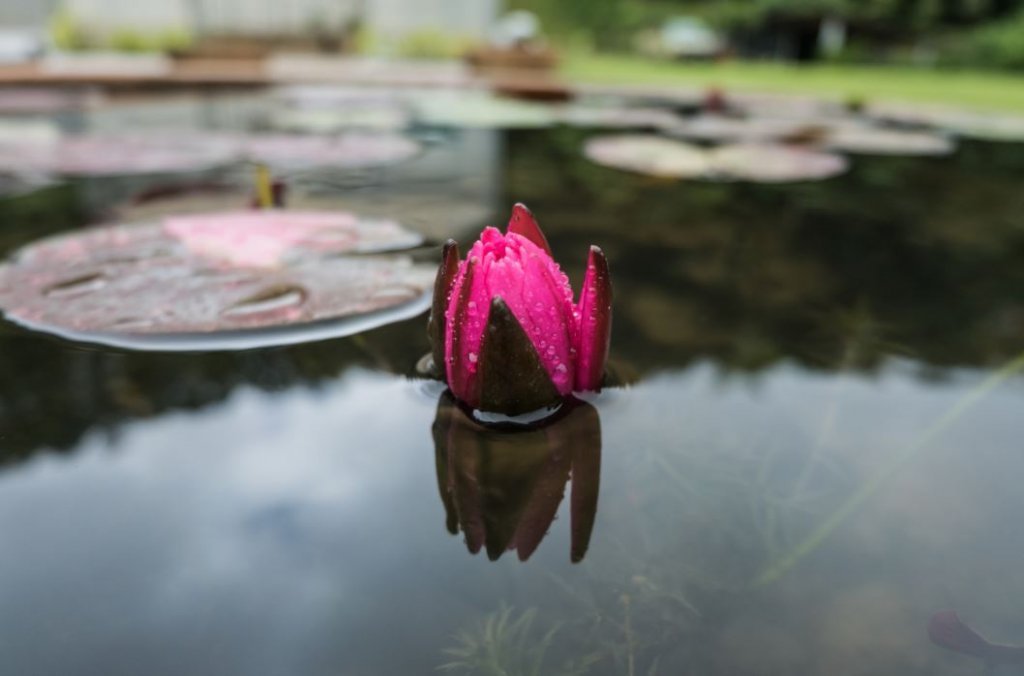In some places, it rains almost every day. On the other hand, others don’t see rain for years at a time. Even so, whether due to its frequency or its absence, rain often arouses the interest of human beings. In fact, it’s become a symbol of romance, transition, and transformation.
Rain is a recurring topic in literature and cinema. Its sound has even inspired numerous musical compositions. There are people who exhibit a special kind of fascination with this natural phenomenon. They’re called pluviophiles.
There’s no official clinical classification for the love of rainfall. A pluviophile simply loves rain and anything associated with it. In this article, we’ll learn about the characteristics of pluviophiles and some curious facts about their fascinating interest.
Characteristics of pluviophiles
People who feel this special attraction to rain are usually distinguished by two outstanding characteristics:
They enjoy the rain sensually
Pluviophiles experience enormous sensory pleasure associated with rain. This means that all (or almost all) of their senses are involved in enjoying the rain.
For one thing, they love to watch raindrops fall, either directly or through windows. Indeed, the contemplation of the rain, following the path that each drop traces on the window glass, seeing how they crash against the ground gives them a huge feeling of tranquility and joy. Furthermore, it allows them to reconcile with nature and treat themselves to a moment of pause and reflection.
On the other hand, they have an exceptional taste for soaking themselves in the downpours or, at least, for feeling the drizzle on their skin. Their sense of touch is activated when they feel the rain and it generates feelings of well-being and freedom in them. However, their taste for feeling the rain on their skin can put them at risk of colds and other respiratory conditions.
In addition, pluviophiles love the sound of the rain. As a matter of fact, research shows that the sound of storms or drizzle is useful to relax us or to enhance our concentration. This is because it’s usually a soft and monotonous sound. However, pluviophiles are particularly fascinated by the sound of rain and by the sensory combination of seeing and hearing it simultaneously.
Finally, pluviophiles love the smell after the rain. In fact, the smell of the wet earth, also known as the petrichor, is a source of delight for them. This smell is the result of a combination of elements. These include geosmin, a molecule produced by a particular type of actinobacteria, vegetable oils, and other substances present in the earth which are activated by rainwater. For pluviophiles, petrichor is associated with sensations of change, transition, and renewal.
They love gray days
Another characteristic of pluviophiles is the relationship they have with gray skies. Unlike most people, those who love rain find a gray sky laden with dark clouds both comfortable and reassuring. They may even feel uplifted on rainy days and low on sunny days.

The origin of rainfall
Just with any hobby, it’s not possible to determine an exact and unambiguous origin of love for the rain. Taking this into account, perhaps there could be an association between the rain and the memories of quiet and happy moments from our childhood.
This interest may also be related to the climate in which we grew up or in which we’ve lived longer. For example, a fascination for rain may arise because rain is a frequent and everyday natural phenomenon for us. Conversely, it could be because it’s so rare.
Finally, it’s possible that people may become pluviophiles if they suffer from heat intolerance. This means they prefer cold and rainy climates because hot climates give them allergies, rashes, or sunburn.
Finally, it’s no coincidence that rain appears so frequently in poetry and in the most beautiful and dramatic movie images. In fact, rain has the power to inspire us, free our imaginations, and reconnect us with nature and the hidden beauty of the world.
The post Pluviophiles: People Who Love the Rain appeared first on Exploring your mind.



















Comments